Stormont situation 'grim', says Theresa Villiers
- Published
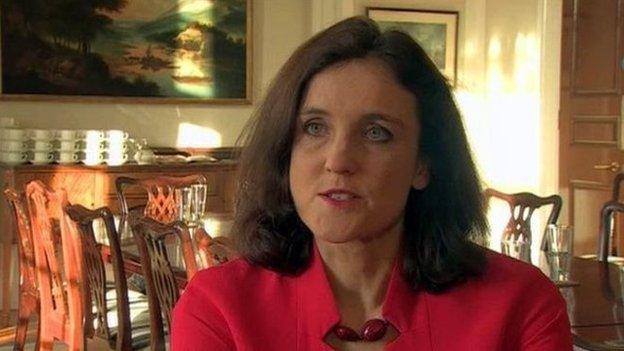
Theresa Villiers said there was a real prospect of emergency budget provisions being implemented
Northern Ireland Secretary Theresa Villiers has said the situation at Stormont "looks increasingly grim", after talks broke up without agreement.
Ms Villiers and the Irish minister for foreign affairs Charlie Flanagan held talks with the five Northern Ireland executive parties at Stormont.
The DUP proposed a budget as if welfare changes had already been implemented.
Sinn Féin said the British government had shown the least intent in reaching any resolution.
Back in December, the Stormont House Agreement was struck between the parties and the British and Irish governments. It is facing collapse over a failure to agree over welfare reform.
Peter Robinson said the DUP will present a new budget based on the implementation of welfare reform
After Tuesday's talks broke up, Ms Villiers said: "We now face the real prospect of emergency budget provisions coming into operation by the end of July with a negative impact on frontline public services.
"Implementation of the Stormont House Agreement is the only way to get things back on track. The government is doing all it can to achieve this.
"The question is whether Northern Ireland's leaders are able to find a way to deliver on their side of the deal."
Mr Flanagan said he believed that "with political will, a way through the current challenges can be found," adding that finding a solution would "require exceptional resolve and leadership from all participants".
'Semi-fictional budget'
Ahead of the talks, the DUP announced that Finance Minister Arlene Foster would be bringing forward a new budget without the cuts of £600m that she had argued were needed if there was no deal on welfare reform.
DUP sources said that if the budget proceeds without the financial situation envisaged by the Stormont House Agreement underpinning it, either the Treasury would have to intervene or the Northern Ireland secretary would have to push welfare reform through via Westminster legislation.
Stormont sources told the BBC a "semi-fictional" budget could buy a bit more time for departments to continue in operation.
DUP leader Peter Robinson said it would be up to the other executive parties to decide if they wanted to accept his party's proposal.
The first minister said the parties had come "to the end of the road".
'Opposition'
During a break from the talks, Sinn Féin's Conor Murphy said signs of political will for a resolution were "scarce".
"The people who have shown least intent in terms of approaching this with any sense of trying to bring a resolution are the British government, who are largely responsible for the crisis we find ourselves in," Mr Murphy said.
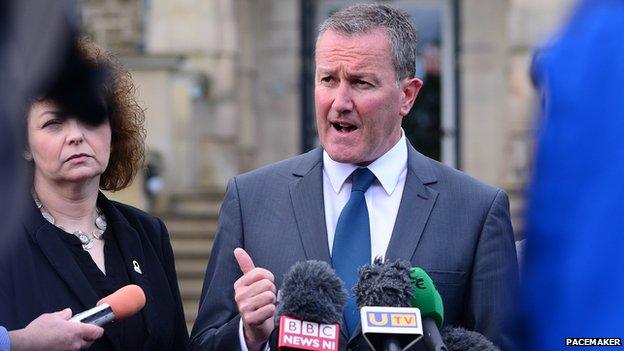
Sinn Féin's Conor Murphy said the British government wanted "in-year cuts" to the budget
"There is a signal from the Treasury that the budget we had largely agreed, the 2015-16 budget, is going to be raided again. The Treasury have signalled they want in-year cuts."
He added that the British government "are under no illusion as to our opposition" to any suggestion that they could take back welfare powers.
Last week, the Welfare Reform Bill failed to pass at Stormont when Sinn Féin and the SDLP made a petition of concern, a blocking mechanism that meant it did not get the required cross-community support.
In March, Sinn Féin dramatically withdrew its support for the Stormont House Agreement.
- Published2 June 2015

- Published31 May 2015
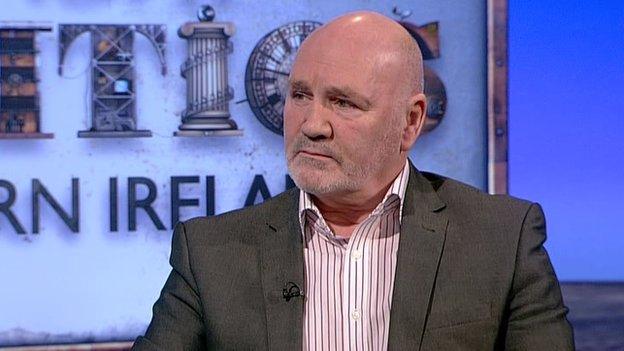
- Published21 May 2015
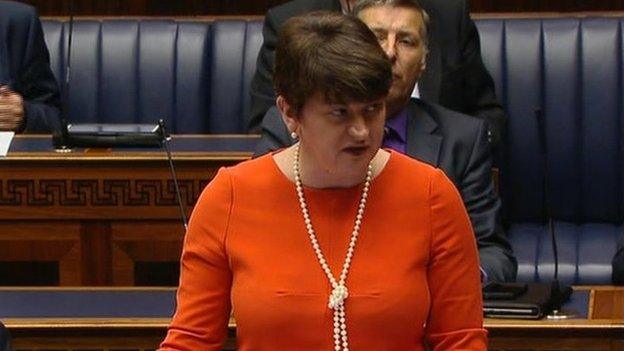
- Published30 May 2015
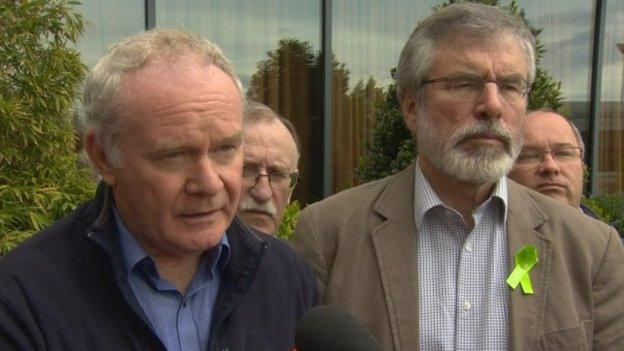
- Published27 May 2015
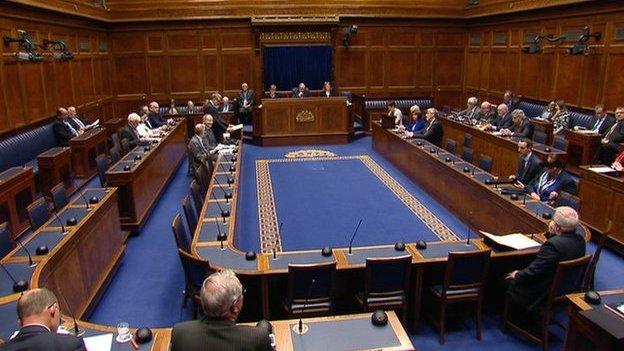
- Published27 May 2015
